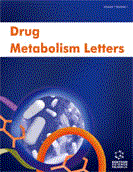Abstract
Background: LPSF/GQ-02 is a promising benzylidene thiazolidinedione that has demonstrated antidiabetic, antidyslipidemic, anti-atherosclerotic properties and can also treat non-alcoholic fatty liver disease. Despite all activity studies of the new compound, its pharmacokinetics are not yet described.
Objective: The aim of this study was to perform its first pharmacokinetic profile.
Methods: For this purpose a bioanalytical method for the quantitation of 5-(4- Chloro-benzylidene)-3-(4-methylbenzyl)-thiazolidine-2,4-dione (LPSF/GQ-02) was developed and validated. A Waters UPLC chromatographer using a BEH column (2.1x50mm, 1.7μm particle), mobile phase water:acetonitrile (20:80) was used. The range of calibration curve in plasma was 1.9 to 250 ng/mL with r = 0.9997. LPSF/GQ-02 stability was evaluated in rat plasma and buffers at pH 1.2 and 7.4. The pharmacokinetic assay was carried out in male Wistar rats weighing 250-300 g. The animals received LPSF/GQ-02 at 3 mg/kg by intravenous route. The animals were used to perform a preliminary safety study concerning the evaluation of liver and kidney biomarkers (ALT, AST, urea, creatinine).
Results: The obtained pharmacokinetic parameters were elimination half-life of 4.44 h, Cl of 8.00 L/h.kg, Vd of 45.60 L/kg and MRT of 3.79h. No difference was observed for the liver and kidney biomarkers.
Conclusion: The intravenous pharmacokinetic parameters are in agreement with a good future posology, even though the plasma concentrations from oral administration were not quantifiable in a dose of 12 mg/kg. The preliminary safety study demonstrated no acute effect of the drug in liver and kidneys. The LPSF/GQ-02 is a new thiazolidinedione that should continue being evaluated for future clinical use.
Keywords: Bioanalytical method, LPSF/GQ-02, Preclinical pharmacokinetics, Safety assessment, Thiazolidinedione, UHPLC.
Graphical Abstract
 57
57 1
1 1
1 1
1














